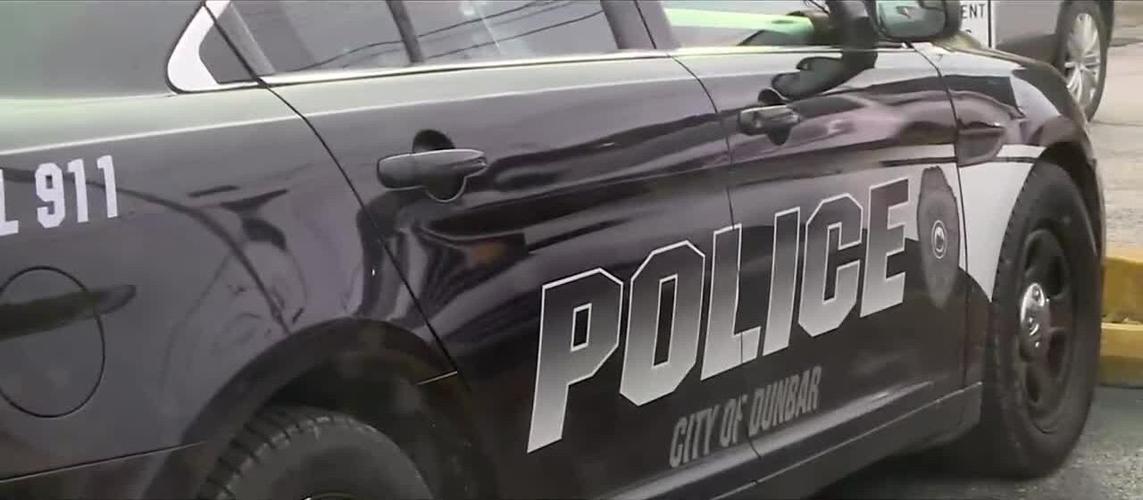
Dunbar Police Department cruiser
CHARLESTON – A $500,000 settlement has been reached between the Dunbar Police Department and a man who accused officers of using excessive force on him outside of police headquarters.
Anthony Reese filed his complaint in 2023 in federal court against Officers Todd Hannah and Zachary Winters, the City of Dunbar and other unnamed city officers.
Winters was one of the officers at the heart of a 2022 federal lawsuit brought by the family of man who was killed while in police custody. The city settled that case for $2 million.
Reese’s claims against the DPD were for its alleged ongoing pattern and practice of allowing civil rights violations to continue by their police officers.
During the litigation, attorneys Jesse Forbes and Dante diTrapano had a video deposition of Winters, who, despite appearing in a DPD uniform, invoked his Fifth Amendment protections against self-incrimination and refused to provide any substantive answers regarding the Reese or Scott cases despite hours of questioning by Forbes.

Forbes (left), diTrapano
Winters was asked about several other instances of alleged police brutality and improper conduct during the deposition, the entirety of which was filed in the Reese case and invoked his Fifth Amendment protections to all such questions, refusing to provide substantive answers.
“Unfortunately, it must seem like ‘here we go again’ for the citizens of Dunbar,” Forbes said. “While the defendants in this case denied the allegations, the hope is that this resolution will help shine the light more broadly on the issues that have been alleged now for years to plague the Dunbar Police Department.
“Each time civil justice is achieved the goal is to make things safer for others in the future and never to see such allegations again.”
Forbes also called Winters invoking the Fifth Amendment “truly astonishing.”
“Typically, the police are the ones listening to an alleged perpetrator invoke their right to remain silent, not the other way around,” he said. “Certainly, everyone has constitutional protections, but we expect to be able to rely on our police officers to tell the truth, the whole truth and nothing but the truth. What the filings here demonstrate is that this officer refused to tell anything of substance. … Luckily for our client, and the rest of the public, pictures really are worth a thousand words, and the video recordings here spoke for themselves.”
DiTrapano elaborated.
“The allegations in this case sadly demonstrate the epitome of a pattern and practice of civil rights abuses,” he said. “The video depicts Anthony Reese helpless on the ground surrounded by officers striking him and calling him names. While claims involving continued police department practices amounting to independent civil rights abuses are rare, the allegations that have sprung forth from Dunbar in recent years are exactly what this area of civil justice exists to correct.
“When brave citizens such as our client stand up for themselves in the wake of such alleged conduct, they help to create change that protects everyone.”
According to court filings, Reese went to the DPD just before 8 p.m. on December 3, 2022, after receiving a phone call from an officer because he had left a book there on a prior unrelated occasion. Reese says he also planned to speak to Winters about prior instances of harassment by Hannah and other officers.
As he approached, Reese says Hannah exited the building and walked across the street to a parked car. When he noticed Reese, he asked him why he was there. The interaction was captured on DPD security cameras and in part on Hannah’s body camera.
Reese told Hannah he was there to talk to Winters. Hannah told him Winters wasn’t there, and Reese turned and walked in the direction from which he came. The interaction took less than 30 seconds.
“As Mr. Reese walked away, defendant Hannah closed the car door and walked back toward the DPD entrance,” the complaint states. “As he approached the DPD entrance, defendant Hannah turned off his body camera. However, the DPD security camera continued to film after defendant Hannah deactivated his body camera.”
The security footage then shows Hannah briefly operating his police radio before calling out to Reese, who stopped and turned to face Hannah from about 20 feet away. The footage shows Hannah walking toward Reese before grabbing him, throwing him to the ground and striking him several times.
“The DPD security camera video shows that, while Mr. Reese was face down and being assaulted by defendant Hannah, an additional six DPD officers, including defendant Winters, ran from the DPD and crowded closely around Mr. Reese,” the complaint states. “Officer body cam footage shows the DPD officers hitting Mr. Reese while loudly cursing, calling Mr. Reese a ‘fucking stupid bitch’ and otherwise assaulting him without cause.”
After about two minutes, Hannah pulled Reese to his feet and placed him under arrest. Winters took Reese into DPD. Video footage shows Reese was bleeding heavily from his head.
One of the officers called EMS to assess Reese. He was transported to Thomas Memorial Hospital for treatment with Winters escorting him. He was treated for multiple contusions and abrasions caused by blunt force trauma to the head, face, scalp, chest, abdomen, back and knees. He was discharged and transported to South Central Regional Jail where he spent three days in the medical unit.
In the police report, Hannah wrote that Reese approached him and feared Reese was trying to retrieve a weapon “so I tossed my radio onto the ground and struck (Reese) five times in the right side of his ribcage.” It also says a knife was found in Reese’s pocket.
Winters’ body cam footage shows him telling Thomas Hospital employees Reese “basically charged at the other officer and threatened to fight him.” The arrest report also says Reese was “swaying back and forth” and smelled of an alcoholic beverage.
The complaint notes the DPD security footage “clearly shows” Hannah pursued Reese. It also says no knife was located at the scene or placed into evidence in connection with Reese’s arrest. Reese denies ever having a knife during the incident. Reese also tested negative for alcohol at both the hospital and jail.
Reese says Hannah had no probable cause to pursue him, and he had no outstanding warrants.
Reese and his attorneys also claimed Dunbar officers spoiled evidence and filed a motion prior to the settlement alleging video evidence uncovered during discovery showed an alleged pocketknife that was supposed to have been recovered from Reese’s person, according to the officers’ initial reports, being produced by Winters, who refused to answer any questions about it, and then being placed into the pants pocket of Officer Chris Kendall, who is now the subject of another alleged police brutality suit against Dunbar.
The pocketknife never was logged into evidence by the Dunbar officers, and its whereabouts were never identified during the litigation. Reese provided testimony during his deposition in the case and specifically denied having the pocketknife in his possession. A motion to amend the complaint to include allegations of spoliation of evidence was pending when the settlement was reached.
“Perhaps just as troubling are the allegations of missing evidence and police reports being disproved through objective video and medical records,” Forbes said. “Though it sounds like the plot of some bad police movie, as alleged, all of it tragically took place in the community of Dunbar, West Virginia.”
DiTrapano called the settlement a “significant result” for their client.
“Much of this case centered on the alleged failures of the Dunbar Police Department to address systemic problems in the wake of the appalling Michael Scott Jr. death,” he said. “Our clients in the Dunbar cases have used the civil justice system to right these alleged wrongs and through these efforts the hope is that this attention drives change. As alleged here, had those changes taken place after the Scott case additional people would not have suffered.
“We will continue to use the civil justice system to protect our clients’ rights and hold any responsible for such injustices accountable.”
U.S. District Court for the Southern District of West Virginia case number 2:23-cv-00805








